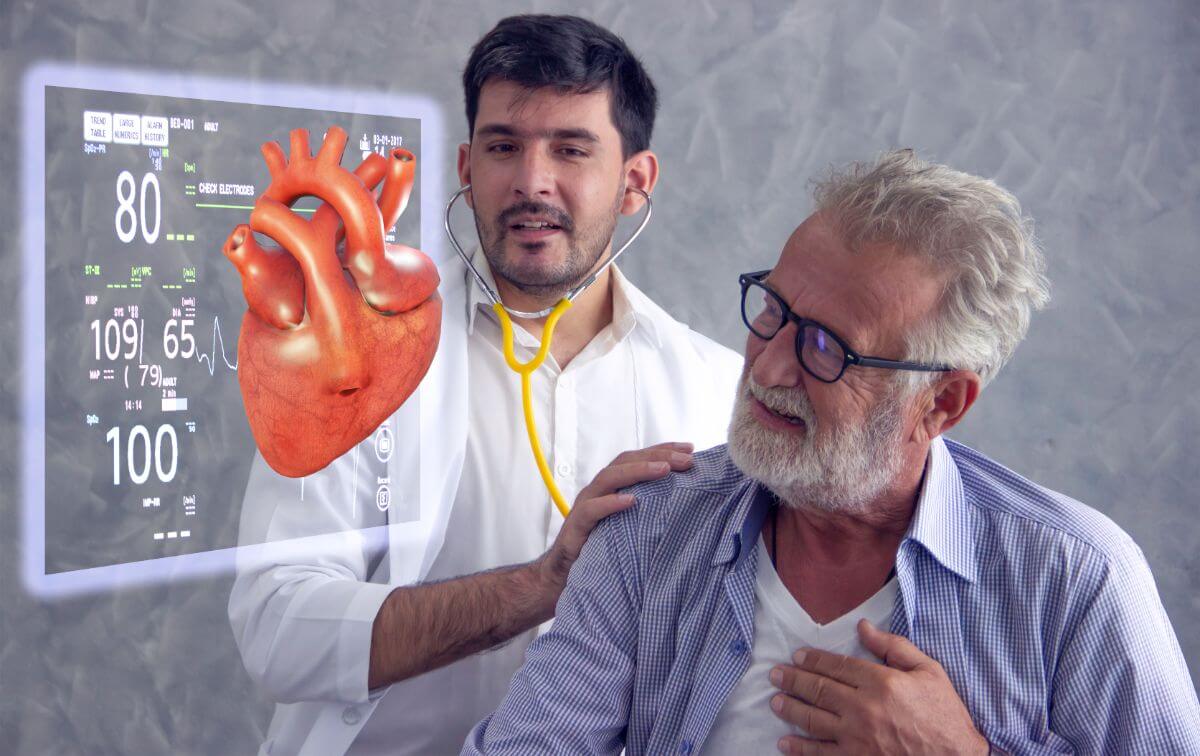Violence against hospitals is nothing new but the way it has spread in the last few years is a matter of worry. It really needs a deeper understanding and prevention by attending to the root causes of violence in healthcare. The present article has been written with the idea to explore the possible causes of violence and thereby help us identify and prevent violence in our workplace.

The first question that needs to be answered is “Why patients/their families become violent?”. Considering the socio-culture, demographic and financial arrangements of Indian population, some of the apparent causes of violence are:
- Disease can change the way we behave: Disease and sickness completely alters the way we see the world. The term ‘Disease’ itself explains it is ‘Dis-ease’. It makes one feel low and depressed. It changes the way one reacts to situations and people. Heightened anxiety is reported among the patients and their attendants during their stay in the hospital leading to weird reactions. The individual and family is under a constant pressure of dealing with a condition that they are not prepared as most of us never think of falling sick and therefore are not prepared to deal with it.
- Hospital is a strange place: Actually, nobody likes to come to the hospital. It’s a very scary place full of smell and strange machinery. The whole milieu of the hospital can throw people out of their comfort zone and can lead to unexpected behaviour and reaction to stress. Most of us become more cranky seeking attention and extra care when we are sick. Hospital psychosis is very common among patients and attendant with increased anxiety.
- Family of the patient is equally stressed out: When the patient is admitted in the hospital, the family experiences equal or more stress than the patient as they are out of their comfort zone. Basic facilities like arrangement to sit, ventilation, air conditioning, clean toilets, safe drinking water and food are at times missing in the facility. Stay in the hospital premises can lead to compromised biological, physiological and emotional needs. The attendants are under constant discomfort and are stressed out. This may last sometimes for days and add to their frustration leading to aggressive reaction to even trivial issues.
- Expectation of prompt care: When patients come to hospitals, they expect prompt care and attention. Especially in critical care areas, the family expects instant attention and care. Any delay in the care is viewed as increased risk to patient’s life, dimming the chances of patient’s survival. In most instances the patient is attended promptly but even a little delay can be viewed as callousness on the part of the healthcare professionals leading to anger and aggressive reaction. In the critical care areas like emergency care or ICU the emotions are heightened. Family is looking under a huge fear i.s. fear of death. Fear of death is one of the most intense emotions and can instantly lead to unexpected reaction from even an otherwise a very calm and reasonable person.
- Unaddressed concerns of the patient and family: Patients and their families have concerns about the diagnosis, treatment options available, expenditure on the treatment, recovery, prognosis and many other aspects. Their concerns need to be addressed and questions need to be answered. All this requires time, effort and arrangement from the healthcare team. We need to keep additional time to counsel and explain the patient’s family. Studies have shown our communication with the patient is not adequate. We do not address these concerns of the patients. For some of us, it is not even part of the treatment and is not our responsibility. Some of us do it but in a very superficial manner. Some of us are not comfortable answering questions related to expenditure, prognosis, second opinion, or questions that seem to be challenging our clinical decision or competency. As a result, we either avoid the discussion or become annoyed and aggressive while attending to such questions. All such behaviours break down the communication between the patient and the doctor and leave the patient feeling disgruntled.
- Seeing is believing: In the critical care areas, the family is not able to see and know completely what is being done in the patient care. Places where we do not regularly update the family of the patients’ condition and inform what all is being done in patient care, the family remains ignorant of it. As a result, they may feel that enough is not being done to save the patient. They are likely to assume neglect in care on the healthcare professionals’ side.
- Cold and insensitive behaviour of staff: A study of the expectations of the family of critically ill patients has revealed that family expects the care-providers to express empathy, care, concern and compassion towards the family of the patients. They expect the care providers to be sensitive to their suffering and be considerate while dealing with them. They like to be regularly updated about the patient’s condition and involved in patient care. Studies have shown that whenever care providers fail to respond to these expectations of the patient’s family and demonstrate a cold behaviour, it leads to resentment among the family members. Behaviours they don’t like but take with a pinch of salt. This accumulated anger commonly comes out as aggressive reaction later.
- Unrealistic expectations of the family: Patients and their family have sometimes unrealistic expectations. They wish quick recovery and recovery at any cost. At times, they relate recovery with the money spent. They ask for guarantee for recovery. Patients and family at times, equate deterioration with carelessness in care. All these expectations lead to frustration and feeling of burden among the healthcare professionals.
- Financial unpreparedness for the medical expenditure: Only 44% of the population is covered under medical insurance. Rest of them have to bear it as out of pocket expenses. Most of us do not keep any special reserves under medical expenses. As a result, any expense on treatment is like a burden and is not a welcome idea. The families with no medical cover experience more stress than those with medical cover. Healthcare expenditure in India has grown multi-fold in the last few decades leaving a big hole in the patient’s pocket. Some of the genuine costs when transferred to patients by the healthcare facility seem like unexplained charges and really pinch the patient. On enquiring about the reason for some of the charges when the patient’s family do not get a satisfactory response, they feel cheated and overcharged leading to unhappiness and aggressive reaction. Financial reasons are one of the commonest reasons for aggressive reactions coming from patient party.
- Loss of trust: Unethical and malpractice by some of the fellow colleagues is enough to taint the image of the whole profession and lose the trust of the patient party. This has majorly affected the faith of the society and has added an element of doubt in people’s mind.
These changing relationships ask for review of the situation and finding out ways to rebuild the trust to prevent violence in healthcare.

How can we rebuild the relationship and prevent violence in the workplace?
- Explain the patient and family about the illness: Once the treating doctor has made an assessment of the patient’s illness and has a mental plan of managing the condition, it is essential to explain the same to the patient party. Patients and their attendants wish to know about their illness, options available to deal with the condition. It is important to let them know of the differential diagnosis, line of management, investigations planned etc. it helps them understand the seriousness of the condition.
- Change the overall way of decision-making: Patients today wish to participate in planning and management of their health condition by discussing and choosing from the available options of treatment. Discussing the possible options with patients enhances their cooperation and agreement to stay in the treatment. The role of the therapist has changed from decision maker to facilitator of decision making by providing required information to make a realistic decision. One of the leading causes of violence is when a treatment modality does not bring desired results. Involving the patient in decision making helps avoiding the complete blame for the decision on the clinician. The usual blame that I was not informed, or I was not asked can be avoided by keeping them in the loop of decision making. This makes them feel in control and empowered. While choosing a treatment modality, it is important to inform the patient/ family about the advantages and disadvantages of the treatment modality. Sharing all the details without withholding anything is important to help them make a fair decision. Discussing the risks and disadvantages of the treatment in detail helps create transparency and build trust. The therapist is expected to develop a mutually acceptable agenda of treatment keeping in mind the patient’s preferences and essential clinical goals. While explaining about the options of the treatment, it is essential to give them a fair idea of the expected expenditure. It is important to know the affordability of the family. Can the family arrange the funds to meet the treatment expenditure? Also, many procedures and treatment modalities have a long-term post procedure expenditure associated with it. For e.g. in bariatric surgery, the patient has to spend lots of money on the diet and supplement after the procedure. All this should be explained properly before the selection of procedure.
- Prognosticate clearly: It is very important to prognosticate honestly as the family should know the seriousness of the situation and the likely outcome of the treatment. When we fail to prognosticate clearly, the family assumes the outcome of the treatment to be good and overreacts when patient deteriorates. While prognosticating it is important to be sensitive but straightforward as any attempt to give unrealistic hope can be counter- productive and create confusion. Answering their questions with patience and honesty will further help them take a realistic decision and build trust in the treating team. Their decision for second opinion, shifting the patient to another set up or going LAMA should not be viewed as an insult and offense.
- Update the family about the patient’s condition on regular intervals: Once the patient is admitted under our care, the family needs to be updated on a regular basis. They wish to know about the effect of treatment. Updating the family on a regular basis helps in informing them about the condition, ask and clarify their doubts about the treatment, have an understanding of future plans and also prepare them for any eventuality, especially when the condition of the patient is critical and has a poor prognosis. Regularly updating the family about the condition of the patient including changes made in the treatment and its impact on the condition is an important way to keep the family informed about all the developments. It gives the family a chance to clarify their doubts and raise their concerns. Regular updating of the family helps prepare the family for any eventuality. Especially when the condition is serious, and chances of recovery are less. Their request for second opinion, transfer to another hospital or dissatisfaction to the services can be amicably addressed during this regular update. This can play a very crucial role in preventing aggressive reaction. Regular updating also creates familiarity between the doctor and the family and helps build rapport. Studies have shown that patient and their family are less likely to be aggressive with the doctor, they are familiar with.
- Practicing evidence-based medicine: Knowing and practicing established medical practices with evidence in the past is imperative as otherwise patient can challenge the practitioner in a court of law. This can go to the extent of cancellation of practitioner’s license. It is also important to know and practice within the scope of one’s speciality. With the advent of new treatment modalities, one feels like trying new ways to manage the condition. It is advisable to inform the patient and the family before implementing anything new. Their informed consent is essential to respect their rights, earn cooperation and avoid any legal hassles.
- Transparent and fair billing: Treatment cost is another common bone of contention between the patient and the healthcare facility. It is important for the patient to know the expected expenditure. At least a rough estimate of the cost of treatment has to be shared to give them an opportunity to decide whether they can afford the treatment or not. Having a rate list (although we don’t like the idea) at the reception and at the accounts department is a good way to give them a fair idea of the expected expenditure. The price of the consumables has to be promising. When everywhere the pharmaceutical suppliers are giving 25-30% discount on the MRP, we charging the MRP actually pinches the patient and feel being overcharged. It is important to make the patient feel not being cheated or overcharged. Fair and competitive charges with a rate list displayed near the reception and billing-counters help demonstrate transparency and build confidence. Avoid using expensive and fancy drugs to keep expenditure to a minimum. Healthcare cannot be considered a money-making business. Any new modality of treatment with not so well-established results should be done carefully after proper explanation and written consent to avoid any dispute over the additional cost of the treatment. Daily billing and payment to avoid huge bills is one of the good ways to avoid leaving not too much to chance and a reason for dispute at the end.
- Address their concerns: Patients have lots of concerns about their illness. They may be apprehensive about the diagnosis, treatment and outcome. They would have multiple questions to ask and clarify. Their major concerns are about the condition of the patient, expected outcome, duration of treatment and expected expenditure. It is very useful to answer these questions with patience as this will help in establishing rapport, winning their trust and earn their cooperation.
- Address the financial concerns of the patient and family: One of the major concerns of the patient and family is the expenditure on the treatment. Only 40% of the population is covered under medical insurance. Rest of them have to bear it as out of pocket expenses. As a result, any expense on treatment is like a burden and is not a welcome idea. The families with no medical cover experience more stress than those with medical cover. Addressing family’s financial concerns should be part and parcel of daily counselling. In case the family expresses inability to continue the treatment under the existing facility due to financial constraints, do not hesitate to facilitate their shifting to another centre where the cost of treatment is affordable for the family for e.g. government set up or some charitable set up. They will definitely respect your cooperation. A family that has exhausted all its funds and cannot afford further treatment has to be assessed and helped to find a suitable place to shift the patient rather than keeping the patient and later fighting over the bill. Transparent charges, giving expenditure estimate, regular discussion about the patient’s condition and expenditure during the stay of the patient in hospital and assessing family’s ability to pay are some of the ways to address the family’s concerns and avoid conflict.
- Address their realistic / unrealistic expectations: When the patient is hospitalized, the patient and family expect the patient to come out fit and fine. Even in extreme serious condition the family expects miraculous results. These might seem like unrealistic expectations. But the reality is –this is how the human brain functions and has a wishful thinking. Rather than being annoyed about it we need to help the patient and family accept the reality. They need to be given a reality check with the help of reports of investigations and other findings, while demonstrating all the efforts to save the patient and do your best. Patient and family will express denial, anger, anxiety and shock. These are all emotional reactions to the diagnosis and fear of loss. These need to be dealt with in a therapeutic way, without taking it personally. One needs to learn and practice empathy to deal with these situations where we address these reactions sensitively while avoiding emotional involvement.
- Facility to meet the basic comfort and safety of the attendants: It is essential to look after the basic comfort and safety of the attendants of the patient. Basic facilities like a place to sit and rest, clean water, ventilation, clean toilets for the attendants and visitors are must to make their stay in the hospital possible. This would also help reduce unnecessary irritants. Safety of the attendants and their belongings is also the responsibility of the healthcare facility by making sufficient security arrangements.
- Prompt handling of their complaints and grievances: We collect feedback from our patients but how many of us take it seriously? How many of us implement it or do the follow up of the same? Patients and their family would give some feedback and suggestions to improve the services of the facility. These should be taken seriously as these usually cover the needs and expectations of the patients. If implemented can definitely improve patient satisfaction. They would also come up to the staff with certain complaints. The staff should be trained to attend to these complaints promptly and not ignore them. Prompt handling of complaints demonstrates professionalism and can help nip the issue in the bud as “a stitch in time saves nine”. Most of the aggressive reactions are outcome of trivial unattended accumulated complaints and grievances.
- Some other remedial steps:
- Counselling under CCTV recording
- Documenting all the communications meticulously
- Security guards round the clock
- Emergency button to inform your team
- Networking with fellow practitioners
- Rapport building with police and other important people in the vicinity
- Social triage – identifying people who can create ruckus at your place and handling them proactively

Dr. Indu Arneja, Director, Indian Institute of Healthcare Communication has a PhD in Psychology and MBA in Hospital Administration. She is a Core Group Member (Health & Mental Health) with National Human Rights Commission, NABH Assessor (IRCA), External Assessor NQAS (MOHFW, Govt. of India), and Master Trainer – Communication in Healthcare.

